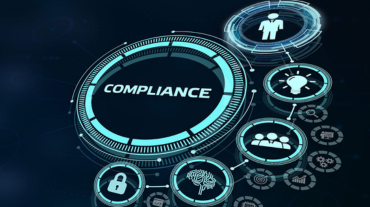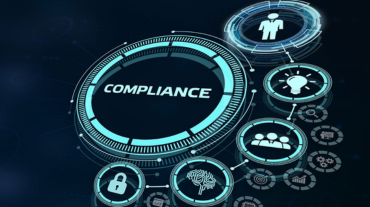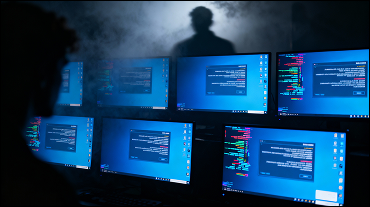Linux systems are the backbone of modern infrastructure, but even these robust platforms are not immune to vulnerabilities. In 2024, the cybersecurity landscape has seen a rise in critical Linux vulnerabilities, posing serious threats to businesses and IT ecosystems. From privilege escalation flaws to remote code execution exploits, the risks are higher than ever. In this article, we delve into the TOP-10 Linux vulnerabilities of 2024, their impacts, and actionable solutions to keep your systems secure.
CVE-2024-42256
CVSS score 9.8
Base severity - Critical
Issue: Unauthorized remote access via arbitrary code execution.
Impact: System compromise, data theft, service disruption.
What to Do: Patch systems, limit remote access, use strong authentication.
AI EdgeLabs Solution: NDR detects anomalous remote access behaviors; Automated Playbooks enable fast incident response.
CVE-2023-52814
CVSS score 9.1
Base severity - Critical
Issue: Local privilege escalation flaw.
Impact: Unauthorized actions with elevated privileges.
What to Do: Apply patches, audit user permissions.
AI EdgeLabs Solution: EDR monitors and blocks unauthorized privilege escalations, safeguarding from unauthorized access.
CVE-2024-0132
CVSS score 9.0
Base severity - Critical
Issue: A vulnerability in NVIDIA's container toolkit for Linux systems.
Impact: Remote execution in container environments.
What to Do: Apply NVIDIA patches and monitor container activity.
AI EdgeLabs Solution: Automated SOC monitors and detects threats in containerized systems.
CVE-2024-25744
CVSS score 8.8
Base severity - High
Issue: Remote code execution vulnerability.
Impact: Unauthorized control, data compromise, system disruption.
What to Do: Patch systems, restrict access.
AI EdgeLabs Solution: IPS actively blocks exploit attempts, while NDR tracks and responds to suspicious network activity.
CVE-2023-52752
CVSS score 8.4
Base severity - High
Issue: Authentication bypass vulnerability.
Impact: Unauthorized access, data exposure.
What to Do: Patch systems, review authentication protocols.
AI EdgeLabs Solution: AI Security Assistant detects authentication anomalies, helping to flag and block unauthorized access attempts in real time.
CVE-2023-52817
CVSS score 8.4
Base severity - High
Issue: Buffer overflow vulnerability.
Impact: System crashes, remote code execution.
What to Do: Update software, monitor for system anomalies.
AI EdgeLabs Solution: Real-time monitoring identifies abnormal memory usage and blocks buffer overflow attacks, ensuring system stability.
CVE-2024-21472
CVSS score 8.4
Base severity - High
Issue: Local privilege escalation.
Impact: Full system control by unauthorized users.
What to Do: Patch systems, restrict user permissions.
AI EdgeLabs Solution: EDR prevents unauthorized privilege escalations, while NDR ensures that any abnormal local activity is flagged and addressed swiftly.
CVE-2022-48655
CVSS score 8.1
Base severity - High
Issue: Remote code execution.
Impact: Complete system control, data exfiltration, network compromise.
What to Do: Patch, strengthen firewall rules.
AI EdgeLabs Solution: IPS blocks unauthorized remote access attempts, while NDR tracks and responds to suspicious activity.
CVE-2024-6387
CVSS score 8.1
Base severity - Critical
Issue: High-severity flaw in OpenSSH permitting remote code execution.
Impact: Unauthorized system access, sensitive data exposure, and disruption of SSH-based services.
What to Do: Update OpenSSH to the latest version, enforce strong authentication practices, and monitor SSH access logs.
AI EdgeLabs Solution: NDR identifies abnormal SSH connection patterns; GenAI Security Assistant provides structured alerts and prescriptive actions for rapid response.
CVE-2023-52434
CVSS score 8.0
Base severity - High
Issue: Denial of Service (DoS) vulnerability.
Impact: Service outages, operational disruption.
What to Do: Patch systems, implement load-balancing.
AI EdgeLabs Solution: NDR detects DoS patterns, and responds to abnormal traffic patterns, while AI-driven Playbooks automate incident response.
How AI EdgeLabs Solutions Can Help
Host-Level and Container Coverage: Provides consistent security across both host-based and containerized environments, optimizing protection for hybrid and microservices architectures.
Running Asset Prioritization: Identifies active images and packages to enhance CVE prioritization within your infrastructure.
AI-Driven Vulnerability Prioritization: Uses GenAI to assess and prioritize CVEs by exploitability, exposure, and system impact, focusing resources on high-risk vulnerabilities.
Accelerated Remediation with AI: AI-driven analysis of CVEs accelerates patching and remediation, reducing system impact and allowing teams to concentrate on critical issues.
Proactive Exploit Detection: Monitors real-time threat intelligence to detect known exploits early, preventing vulnerabilities from escalating.
Targeted Fix Recommendations: Provides AI-powered, actionable remediation guidance for IT and DevOps teams, ensuring efficient and specific vulnerability resolutions.
Detailed, Customizable Reporting: Generates data-rich reports to track progress, compliance, and risk over time, with customizable formats for easy integration in security audits.
Take the first step toward stronger Linux security. Explore AI EdgeLabs’ AI-powered solutions today and ensure your systems are safeguarded against tomorrow’s threats.












